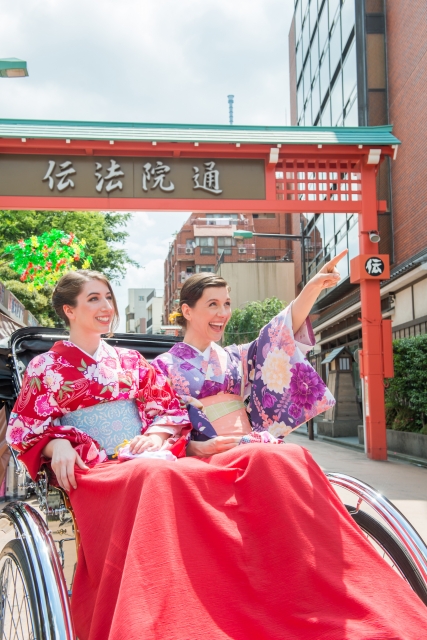Opening
Roza
▶︎ Hey, everyone. This is Akino Roza.
Let’s have another great lesson today.
David
▶︎ All right, everyone. David Evans here. Let’s get to it.
Dialogue
① Today’s guest is a stand-up comedian from Japan.【 stand-up comedian の意味 】
👉 stand-up comedian – これは「お笑い芸人」ですね。
② I started in Asakusa in Tokyo.【 説明レールに従った配列 】
👉 in Asakusa in Tokyo – この順番になっていましたよね。
I started と言ってから、「どこから始めたの? – in Asakusa 」-「どこの浅草? – in Tokyo 」
説明ルールの順番にきれいになっている、というわけです。
③ Oh, you mean rickshaw tours.【 rickshaw の意味 】
👉 rickshaw – これは「人力車」のことですね。
④ On the job, I told jokes to the tourists in English.【 ステージの on 】
👉 on the job – これは「ステージの on」ですね。job という活動をしている、そのステージの上に、
乗っている時に、というニュアンスです。
Practice
David
▶︎ All right. It’s time for practice.
And today is part II of “wh疑問文 3点セット.” All right?
We’ll practice with why, how, when and where. Are you ready?
Roza
▶︎ I am.
David
▶︎ Here we go!
Roza ▶︎
・How did you get started as a comedian [方法]?
・How did you get started as a comedian [方法]?
・When did you get started as a comedian [時]?
・When did you get started as a comedian [時]?
Daivd
▶︎ All right. Let’s keep going.
・Where does the comedy part come in [場所]?
・Where does the comedy part come in [場所]?
Roza
▶︎ And one more.
・How come you came here [理由]?
・How come you came here [理由]?
David
▶︎ Unlock your potential.
Roza
▶︎ Repetition is the key.
Roza & David
▶︎ Great work.
Ending
Onishi
▶︎ Hey, guys. Have you ever been on a 人力車?
David
▶︎ Ah 〜, I have. Actually, but not in Japan!
I was in China, in Beijing!
Onishi
▶︎ Right. Hwo about you, Roza?
Roza
▶︎ Yeah, Actually, several times.
飛騨高山、京都、奈良.
Words and Phrases
① It’s your call.
👉相手に決定権があることを表す表現
これで、Lesson 226 は終了。









コメント